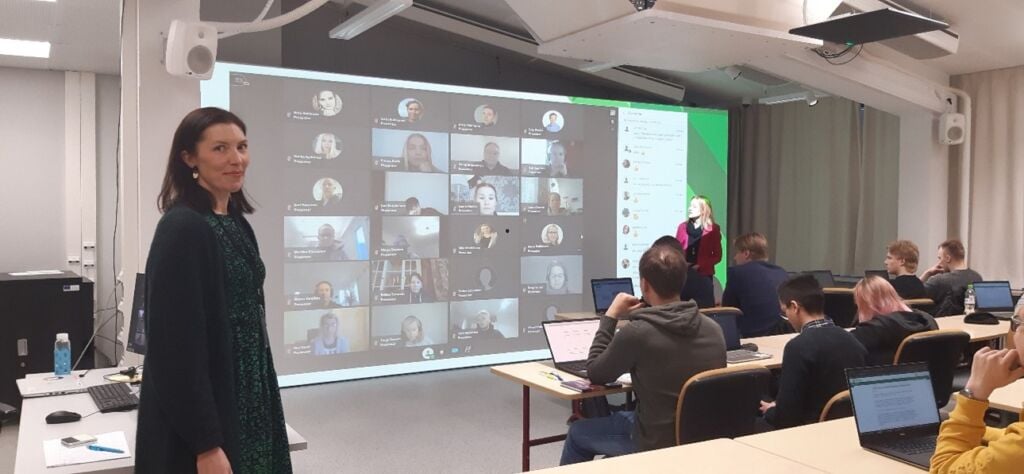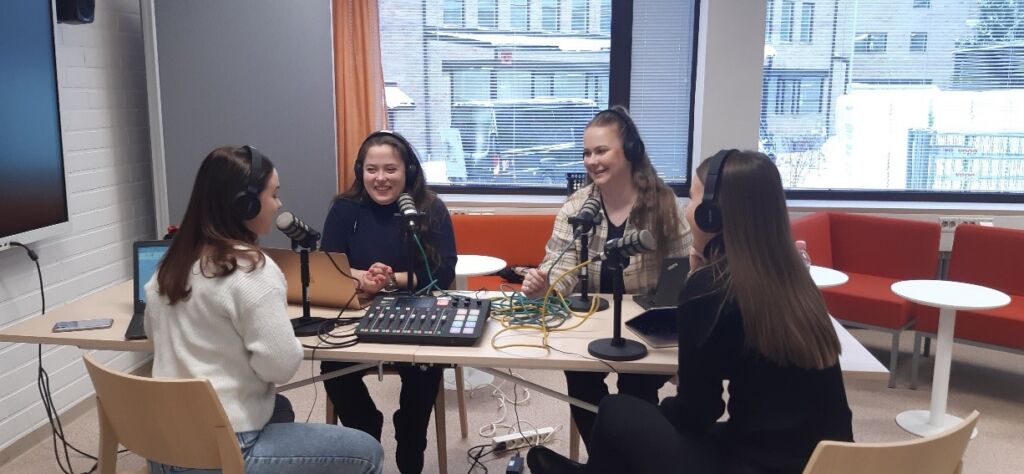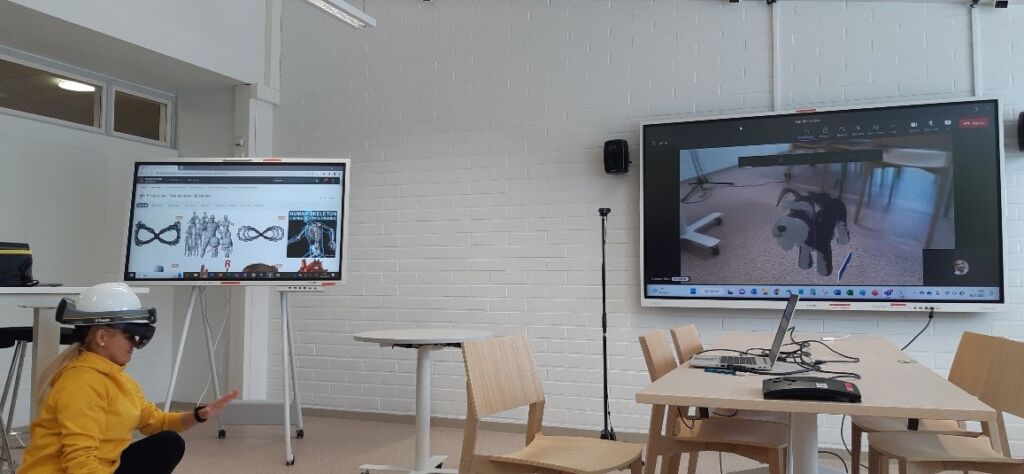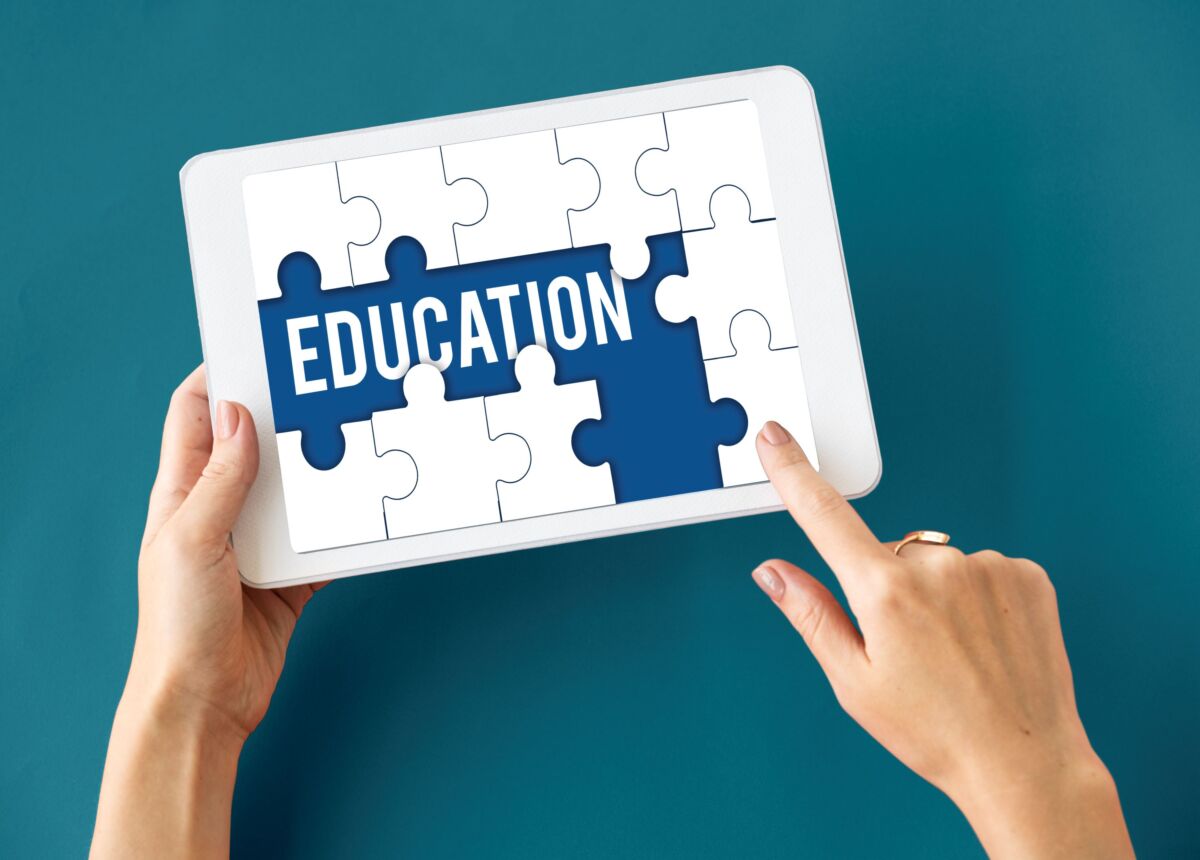Digital development has been rapid in the field of education. Karelia University of Applied Sciences has actively implemented digital and digipedagogical development since the early 2000s. As part of the digital development strategy, the first digimentors in Karelia UAS started in 2018. The aim of the digimentors as part of the strategy is to support the development of the digipedagogical competence of the Karelia UAS educational staff.
This article discusses the concepts of digimentor and digimentoring, possibilities of combining pedagogy and learning technology in the future, the development of new learning environments and learning technologies in Karelia UAS, and the role of Karelia’s digital mentors in future developments.
What is a digimentor and digimentoring at Karelia UAS?
Digital pedagogy is the application of technology to support learning. Digital pedagogy always focuses on learning, pedagogical manuscripts, and a step-by-step approach to the learning process (Virtanen 2020.) In several educational organizations, the use of technologies in learning design and processes has been addressed by developing digital mentoring activities. Digimentors are experts in the pedagogical use of technologies (Hyttinen 2022a).
The Digimentor at Karelia UAS is an expert who supports teachers in brainstorming, planning, designing, testing, implementing, and developing e-learning processes. Digimentors provide support according to the teacher’s individual needs. Digimentoring may involve e-learning processes as a whole, such as structuring pedagogical manuscripts and building the e-learning environment, or more specifically for individual digipedagogical needs. These needs may include the ideation, planning, testing, implementation and further development of the course structure and content or methods and tools used in content creation or learning tasks in the e-learning environment. Digimentors have a front seat to teacher-driven needs. This allows them to use and transfer the ideas, knowledge, information and training needs between educational staff and organization (Puustinen & Korhonen 2021).
Digimentors work as digimentors one day per week alongside their regular jobs. Teachers can contact the digimentors any time according to their needs and schedule a meeting with digimentor by booking a meeting in their calendar. Meetings are mostly conducted remotely in Teams. The key to this approach is that the threshold for contact is as low as possible. All digimentors are teachers themselves with long and solid practical experience of teaching in higher education, which makes them experts in the teaching profession in addition to digipedagogical expertise. Digimentors at Karelia UAS (in 2022-2023) are lecturer Sini Puustinen (Tikkarinne campus) and lecturers Mikko Hyttinen and Esko Tiainen (Wärtsilä campus). The digimentor activities are coordinated by Karelia’s Student Affairs Services and the coordinators are instructional technology specialist Minna Rokkila and blended learning pedagogy planning officer Antti Kauppila.
New learning environments and learning technologies are developing Karelia UAS
New learning environments have been built on both Karelia UAS campuses (Tikkarinne and Wärtsilä) through the Future Work project in 2022-2023 and new technology has been acquired for teachers to use to support student learning. At the environments teachers can work and implement new learning technologies together as a working community or with digimentors.
One example of the new learning environment is the Canvas space in the Tikkarinne campus, the only one of its kind in Finland (in 2022). The room has three screens for working with Canvas. This allows all participants to produce and edit common content. This enables effective collaboration, teamwork and project planning. In addition to Karelia’s teachers, students can also use the facilities.
Tikkarinne and Wärtsilä also have MLC (MultiLocation Classroom) facilities that teachers can use for inter-campus collaboration. In these MLC classrooms, teachers can also teach online or hybrid classes and make use of the full-wall display in the room. Digimentors assist in the introduction of these new environments, and the use of the technologies they include. All teachers have different technological skills and using the technology can be an extra headache or even intimidating for some teachers. In many cases, digimentors are also involved in teachers’ first experiments with new environments, so they know that support is immediately available if something unexpected happens. This promotes the uptake of new technologies in teaching and reduces the cognitive load experienced by teachers in combining pedagogy and technology.

New learning technology tools have been acquired, for example, to produce podcasts. Podcasts can be used in a wide and varied range of teaching activities (Hyttinen 2022b). Training sessions on the use of podcast equipment have been implemented for teachers and teachers have been actively using these podcast technologies in their teaching. Teachers can use the podcasting equipment independently or with a digimentor. The podcast equipment has been purchased for both campuses and is permanently installed in one classroom. In addition, portable podcast devices have been purchased, which are easy to take with you wherever you like to record a podcast. These podcast classrooms and portable devices can also be used by students for their learning projects.


Digimentors in Karelia – Strong pedagogical skills and practical experience
The main task of the digimentors is to support and help teachers with the digital pedagogical issues and challenges they face. Teachers’ questions and challenges are usually very concrete, but sometimes they require the digimentors to learn and relearn something new. Teachers’ needs vary greatly depending on their field of teaching and their level of digital competence. For example, they may have questions about the e-learning environment or the use of new learning environments and learning technologies in teaching. The role of a digimentor is therefore one of continuous competence development and the maintenance of technologies that support student learning.
Digimentors’ view of the core of digimentoring is that the purpose of technology is always and primarily to support students’ learning and competence development. In practice, this means that, at its best, learning technology can increase student engagement, motivation, meaningfulness, variety and diversity of learning. Pedagogical insight into when and how to use different learning technologies is a strength of digimentors. They also see the added value of learning technologies in strengthening students’ technological skills for future jobs.
References:
Hyttinen, M. 2022a. Digimentori auttaa opettajia teknologiahaasteissa. Skootteri 1/2022.
Hyttinen, M. 2022b. Podacast pedagogiikalla monipuolisuutta ja vaihtelua opetukseen. https://tulevaisuudentyo.karelia.fi/2022/03/podcast-pedagogiikalla-monipuolisuutta-ja-vaihtelua-opetukseen-ja-oppimiseen/. 5.5.2023.
Puustinen, S. & Hyttinen, M. 2022. Karelian digimentorit tukevat pedagogiikan ja opetusteknologian yhdistämisessä. Pulssi-portaali. https://www.karelia.fi/2022/05/karelian-digimentorit-tukevat-pedagogiikan-ja-opetusteknologian-yhdistamisessa/. 5.5.2023.
Puustinen, S. & Korhonen, M. 2021. Digimentorointia Kareliassa. VASU. Karelia-ammattikorkeakoulun verkkojulkaisu 2/2021. https://vasu.karelia.fi/2021/04/12/digimentorointia-kareliassa/. 5.5.2023.
Virtanen, M. 2020. Verkko-opetuksen laatukriteerit digipedagogisen osaamisen kehittämisessä. Teoksessa: Koskinen, M.I., Nakamura, R., Yli-Knuutila, H. & Tyrväinen, P. (toim.) Kohti oppimisen ekosysteemiä. Jyväskylän ammattikorkeakoulu, Jyväskylä, 56-59. https://indd.adobe.com/view/137919a6-4ad3-4f44-afaa-1732c507c1db. 5.5.2023.
Cover photo by rawpixel.com on Freepik
Authors:
Sini Puustinen, Senior lecturer, Digimentor, Karelia University of Applied Sciences
Mikko Hyttinen, Lecturer, Digimentor, Karelia University of Applied Sciences

